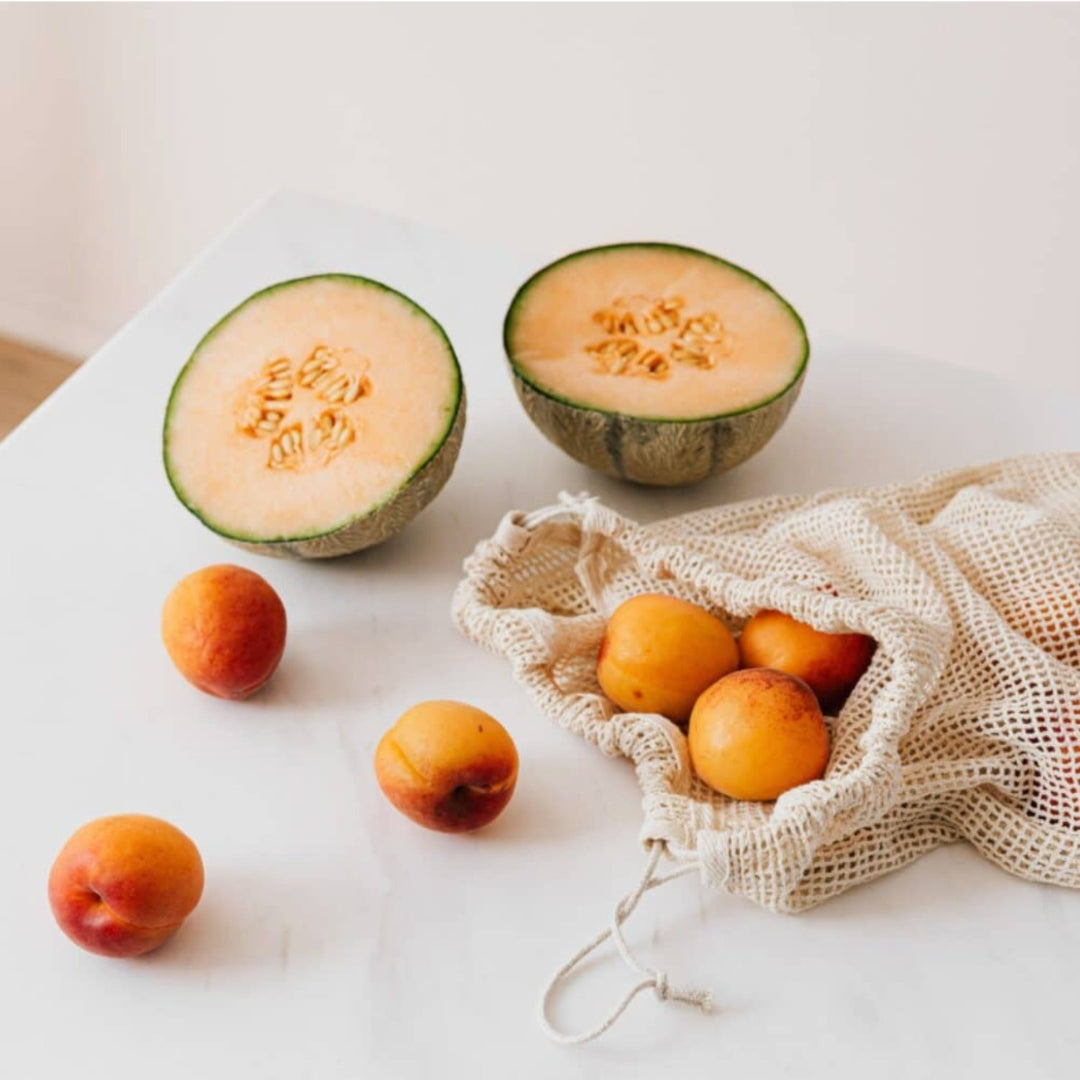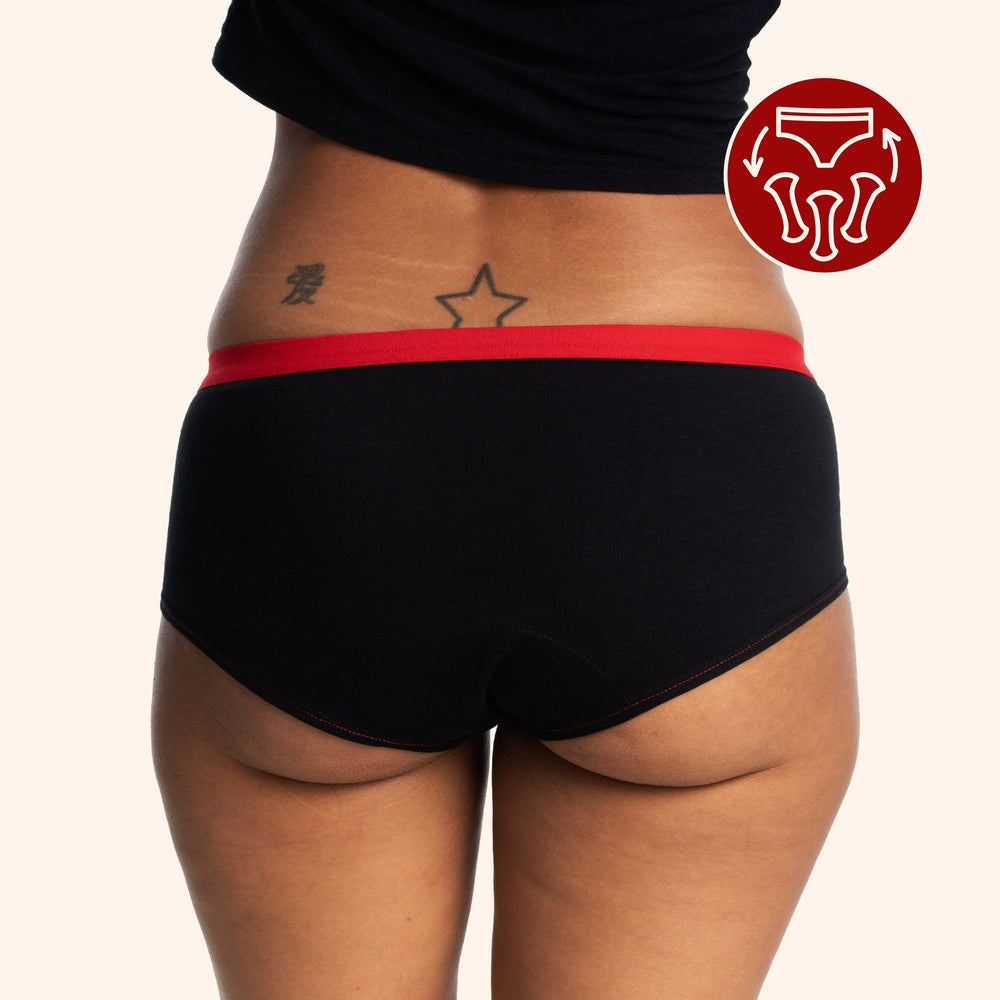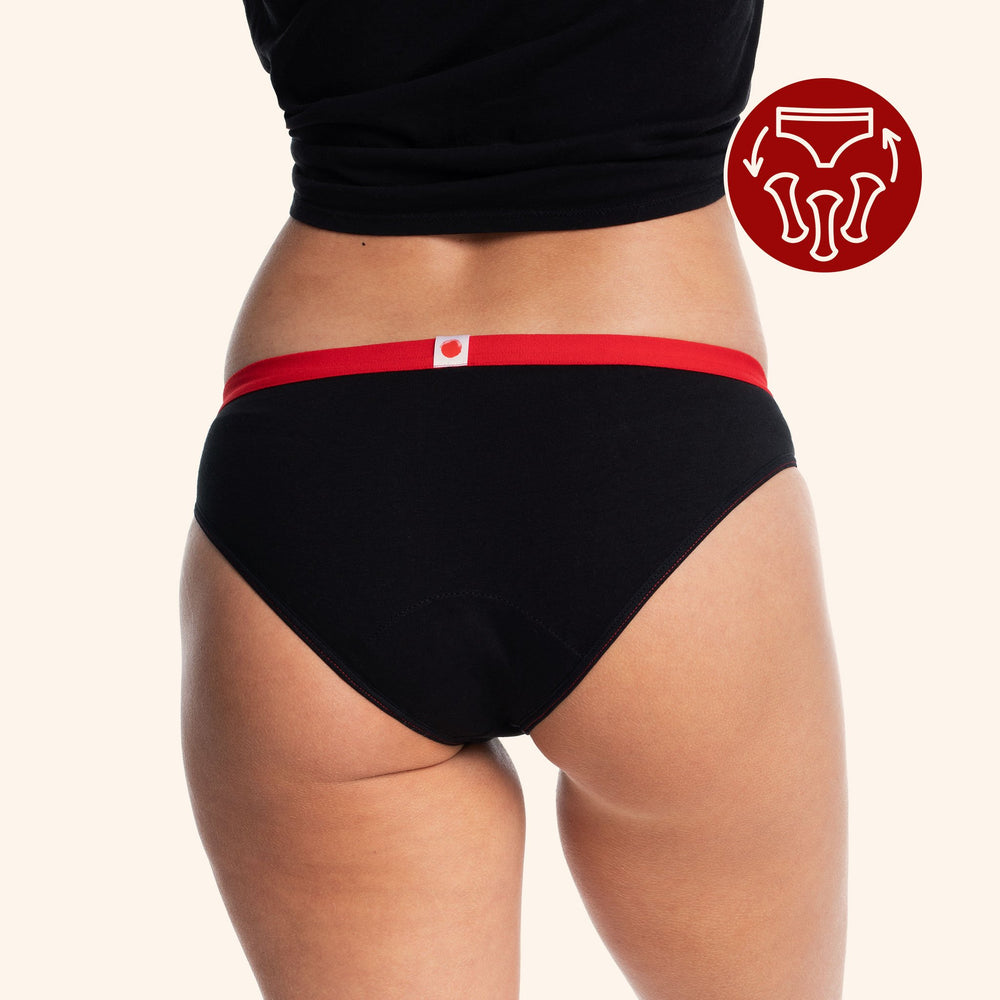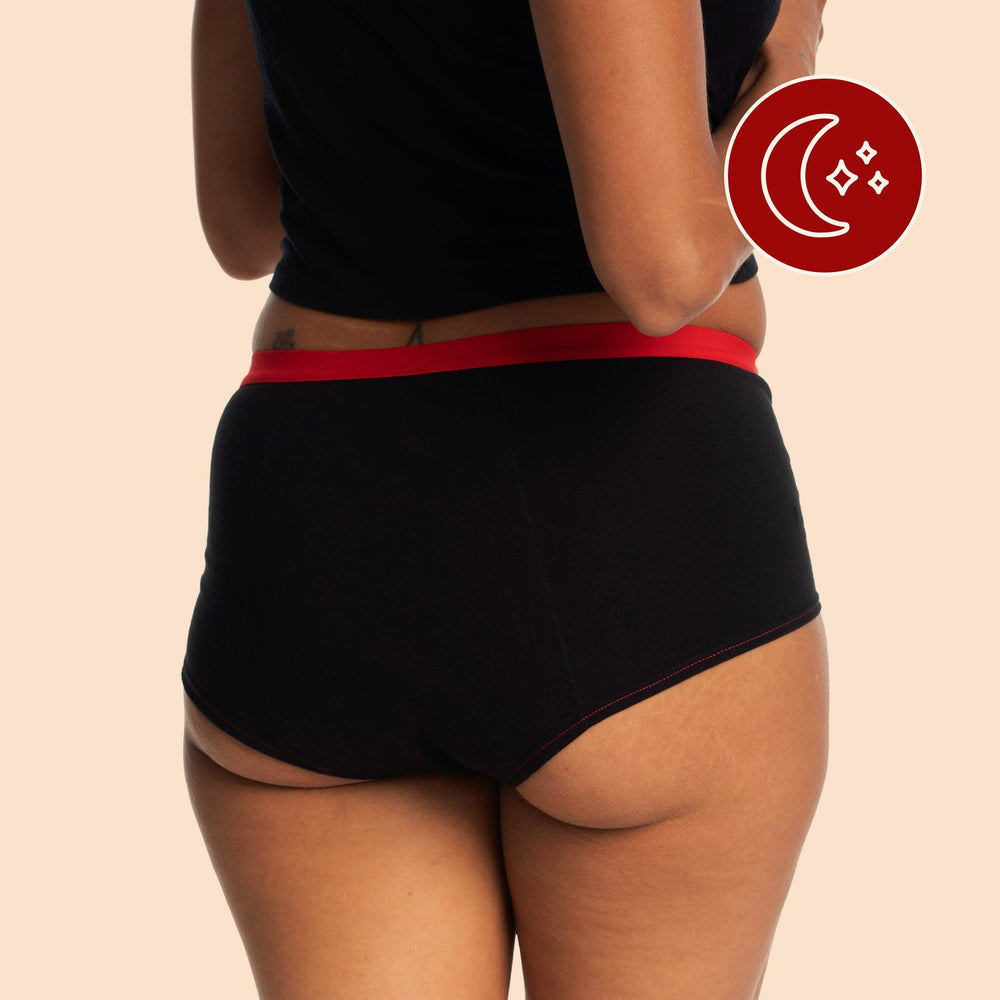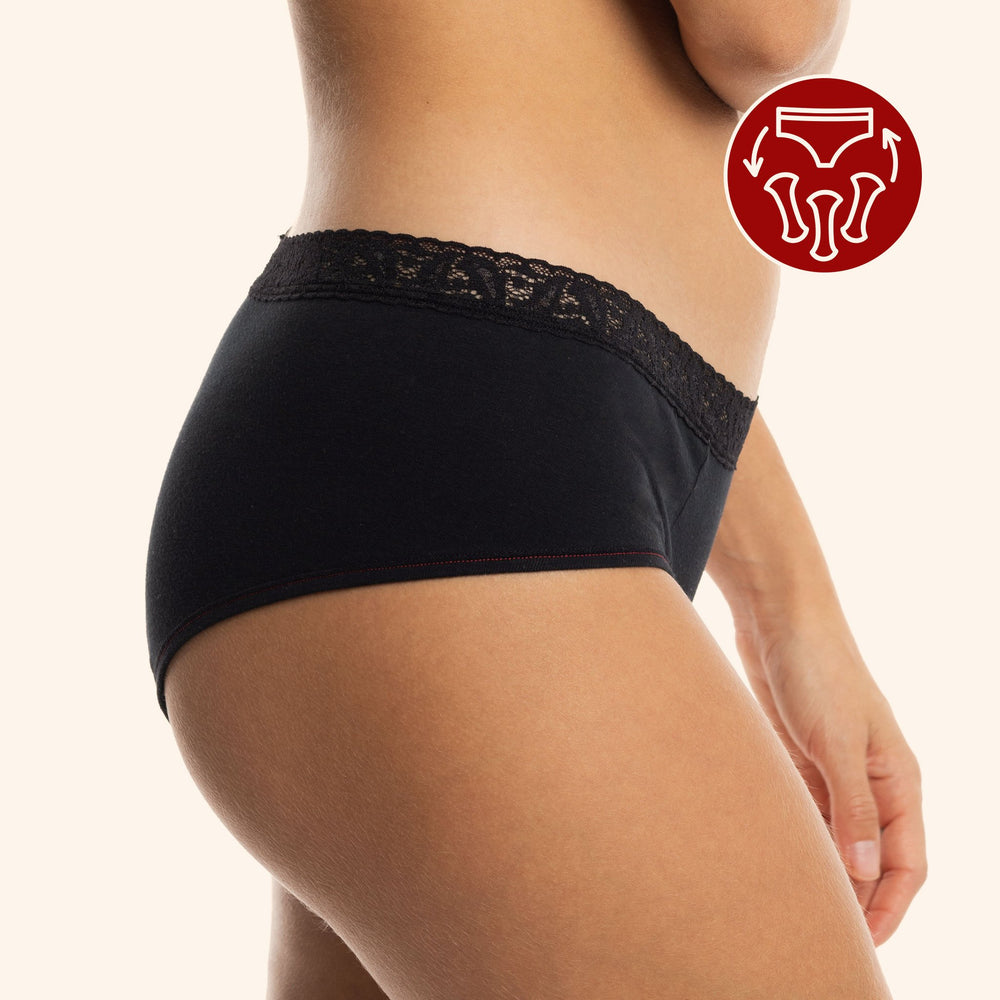As
you may have noticed, Mme L'Ovary’s undies are designed in Quebec –
but that’s not where they’re made. They’re actually
manufactured in Medellin, Colombia, and in this article, we explain
why!
Why aren’t they made in Quebec?
There
are several reasons why we’ve chosen not to have our underwear made
in Quebec. The first is obviously financial. Not only do we have to:
1.
import fabrics (we choose to source from South America instead of
Asia to ensure the quality of our raw materials)
we
also have to:
2.
rent premises, hire competent staff (undie-making know-how isn’t
common in Montreal) and maintain our team (time, salaries, culture
and benefits, administration, etc.).
3.
Because we don’t manufacture in house, we’ve had
to find a competent third party who shares our corporate
values and quality standards (which can be hard to do when a location
isn’t home to any particular expertise), and this third party costs
more than the simple sum of the salaries of the people working on our
product.
Mme L’Ovary and Colombia
When
we started Mme L’Ovary, Olivia and I were already travelling
extensively in South America. In fact, we decided to produce our
first prototype in Mexico, a country we’d lived in before we even
met and began the L’Ovary adventure.
We
were no strangers to the fame of Medellin, dubbed the underwear
capital of South
America, due to the importance of the city’s textile industry and
its reputation as a centre for the production of lingerie and
intimate apparel. Several friends and entrepreneurs in
our circle were talking to us about Colombia, and they also inspired
us to discover
the country’s Indigenous peoples and their cosmology in our search
for meaning, particularly around femininity, cycles, and
menstruation.
After
many recommendations and synchronicities around Colombia and after
having met several Colombians here in Quebec, California, and Mexico,
all of them urging us to consider setting up our business in
Medellin, we finally decided to go explore what the country had to
offer and what we could bring in return.
Medellin, textile capital and underwear mecca
Medellin
is known for its textile industry, which includes the production of
fabrics, garments (especially underwear!), and other products made
from textiles like cotton, polyester, and silk. It is also home to
several large textile markets where fabric and clothing manufacturers
can source quality imported or local materials.
The
city has a long history of textile manufacturing and is home to many
garment manufacturers. In recent years, the Colombian government has
encouraged the growth of the country’s textile industry, including
the promotion of exports of Colombian-made clothing and textiles.
Mme L’Ovary’s first steps in Colombia
From
our very first visit, we didn’t want to leave. While discussing our
needs and our product on site, we met Luciana (not her real name), a
seamstress we immediately became friends with.
She
made our first order in the country with the help of her eldest
daughter and three other seamstresses right in the comfort of her
home!
By
the time we met Luciana, we’d also embarked on a very different
exploration, that of the country’s spiritual
dimension of Colombia, with its abuelas,
its vibrant connection to nature, and its age-old rites and
medicines.

Colombía es pasión!
In Colombia, which is such an exotic and mysterious country, spirituality is deeply rooted in everyday life. Colombians have a close relationship with nature and the spiritual forces that govern it, and this relationship is often reflected in their art and culture.
The streets of Bogotá, the capital, are brimming with mysticism and spirituality, and churches stand side by side with curanderos (healers) and talisman sellers. Colombians are proud of their Indigenous roots, and many still practice ancestral rituals handed down from generation to generation.
Colombia is also known for its magnificent landscapes, which inspire great admiration and deep reverence for nature.
The country’s spirituality is deeply linked to the notion of community. Colombians have a strong tradition of teamwork and collaboration, and this is reflected in their relationship with the spiritual world. Ceremonies and rituals are often organized in groups, with each person bringing their own energy and power to bear on a common goal.
The idea of living together is also very much alive on the political side of Colombia, since after years of armed conflict, the country continues to face major political and social challenges, particularly in terms of human rights, social justice, and economic development.
Social movements are fighting to make their voices heard and to defend the rights of marginalized communities.
Colombia for women
Influenced by many different cultures, femininity in Colombia is a complex and interesting subject.. Colombian women are often seen as passionate, sensual, and strong, with deep connections to nature and pride in their country.
However, there is also strong pressure for Colombian women to conform to Western beauty standards, with particular attention paid to their physical appearance. They’reoften encouraged to be slim, have sleek and shiny hair, and wear fashionable clothes.
Plastic surgery has become VERY popular and incredibly accessible. While we were there, we were struck by the sight of billboards offering a trio of so-called beauty services: breast augmentation, lip enhancement, and a butt lift, all for the low price of $XX! You only have to scan the streets to see the heavily modified, often bizarre bodies that those services have spawned.
When it comes to the perception of women and menstruation in Colombia, the subject is equally complex. While the wisdom and ancestral beliefs surrounding women’s cycles are rich and give menstruation a sacred connection with the Earth, the modern world has imposed a strong stigma surrounding the subject. In Columbia as in everywhere else, menstruation is often considered dirty or shameful, and women are encouraged not to talk about it and to experience it with as much subtlety as possible.
However, there’s also a growing awareness of the importance of normalizing menstruation and allowing women to talk openly about their menstrual experience. Colombian women are increasingly encouraged to take care of their menstrual health, and they have increasingly better access to safe, affordable menstrual products.
Femininity in Colombia is a delicate blend of sacred and ancestral wisdom, pride, social pressure, and the consequences of patriarchy. However, a positive evolution is underway, and Colombian women are breaking free from rigid beauty standards and beginning to embrace their own definition of femininity, all while working to normalize menstruation and break the taboos surrounding it.

Spirituality for women
Colombian culture places great importance on feminine spirituality and the practice of sacred rituals related to femininity. The beliefs and practices surrounding sacred femininity are often associated with nature and the Earth, which are considered sacred and nurturing.
In
addition, Colombian women sometimes participate in women’s circles
to connect with their spirituality and support each other in their
personal and spiritual growth. These circles are often led by older
women (abuelas) or healers who share their wisdom and
knowledge with younger generations.
Feminine
spirituality in Colombia values the links between women, nature, and
the community, and it believes that the health and well-being of
every woman depends on the harmony of these relationships.
Menstruation is also considered an important aspect of feminine
spirituality in Colombia, as it’s seen as a sign of fertility and
the ability to give life.
These
practices emphasize the importance of harmony and balance between all
aspects of life and are a source of healing, renewal, and connection
for women and their communities.
Mme L’Ovary and Colombia: The sequel
Because of the women’s gatherings we were lucky enough to attend and the community that welcomed us in Medellin, we quickly found ourselves holding Colombia close to our hearts.
Reconstructed
after years of conflict, it was a land of caring people eager to work
together and make a positive transition in love and joy. We admired
the community spirit and the ancestral rituals on which it was based.
We
launched our socio-financing campaign in Quebec, and the response was
beyond our expectations. Our next round of production at Luciana’s
house was even bigger than the first. For her and her
small team on the second floor of her family home, there
were just too many undies to make in such a short period of time!
Luciana
told us about her sister, who works in a professional production
facility that makes its own brand of made-in-Colombia underwear.
She’d been working there for a long time when Luciana asked,
and she convinced management to take on our little project as a side
hustle.
As
the icing on the cake, Luciana stayed with us to make our
leak-proof carrying bags on a subcontract basis, a more reasonable
volume of work for her small team.

Our
new production site was brilliant. We often visited and sometimes
went back for dinner with Luciana and her sister, who told us about
the working conditions, remuneration, and corporate culture of the
place. We couldn’t have been happier with our decision.
The
compromise suited us perfectly – it was truly the best of all
worlds. Professional production gave us greater consistency, a wider
choice of textiles, and,
above all, stability for our small but growing business!
And since we were one of their only projects outside their own brand,
we had a small, dedicated team and greater agility.
Mme L’Ovary and Colombia today
We spent several years working with Luciana’s sister! But during COVID-19, their brand grew (good for them!), and they no longer had the time to make Mme L’Ovary products in addition to their own.
But
that’s okay! They referred us to a friendly company who shares
their values and work ethic. We’ve been doing business with them
for just over a year now, and we’ll be paying them another visit
very soon :) We will salute Luciana, her sister, and our new partners
on your behalf!








